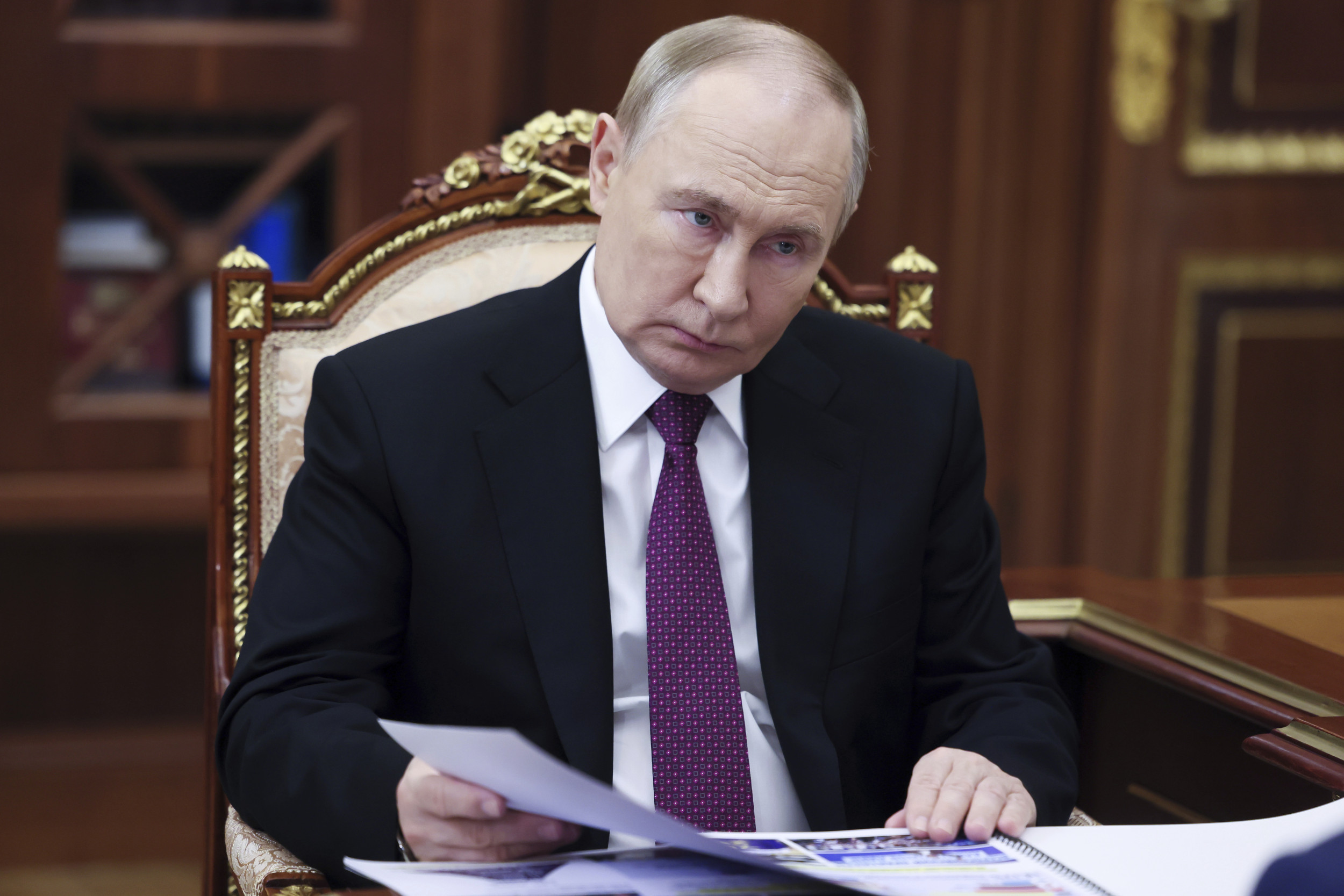
President Joe Biden will give Ukraine authorization to use US-provided long-range weapons to conduct strikes into Russian territory, prompting concerns among supporters of President-elect Donald Trump that it will cause Vladimir Putin to escalate the conflict.
Representative Marjorie Taylor Greene, the Georgia Republican, wrote on X, formerly Twitter: “On his way out of office, Joe Biden is dangerously trying to start WWIII by authorizing Ukraine the use of U.S. long range missiles into Russia.”
In recorded remarks posted to messaging app Telegram, Putin said: “They have not told me anything about it, but I hope they have heard. Because, of course, we will have to make some decisions for ourselves, too.”
The potential strikes could include Ukraine using ATACMS (Army Tactical Missile System) rockets, which have a range of up to 190 miles. Three sources familiar with the decision told Reuters that Biden the first deep strikes are likely to occur in the coming days and the targets could include Moscow.
Here’s what Putin has previously said about a potential Russian response to such an attack.
What Has Vladimir Putin Said About Using Nuclear Weapons?
In September, Putin changed Moscow’s “nuclear doctrine” to include potential responses to an attack that poses a critical threat to the sovereignty of Russia, carried out by a nonnuclear power with the participation or support of a nuclear power.
“Aggression against Russia by any nonnuclear state, but with the support of a nuclear state, is proposed to be considered as their joint attack on Russia,” he said during a televised meeting of Russia’s Security Council.
“Russia will also consider the possibility of using nuclear weapons when receiving reliable information about a massive launch of means of aerospace attack and their crossing of our state border.”
He added: “This includes strategic and tactical aircraft, as well as cruise missiles and drones, hypersonic and other delivery vehicles. Russia reserves the right to use nuclear weapons in case of aggression, including if the enemy using conventional weapons poses a critical threat.”
Vyacheslav Prokofyev/Associated Press
Though he did not mention any specific countries or weapon systems, the context appeared to be increasing provision by Western countries of long-range missile systems for Ukraine. U.S. authorization for the use of such systems against Russia follows months of pressure from Ukraine, particularly as North Korea’s deployment of thousands of troops to the front lines to fight alongside Russia has changed the landscape of the war.
Ukraine has previously used ATACMS to conduct strikes into Russia in October and August. Newsweek has reached out to the Ministry of Defense of Ukraine and the Ministry of Defense of the Russian Federation for comment via email.
When asked to respond to the news of Biden’s authorization on Sunday, Russian Foreign Ministry spokesperson Maria Zakharova told Russian network RBC TV that Putin has “has already spoken on this matter.”
Zakharova was seemingly referring to other remarks by Putin in early September, when he said: “It is not a question of allowing the Ukrainian regime to strike Russia with these weapons or not. It is about deciding whether NATO countries become directly involved in the military conflict or not.”
Russia would make “appropriate decisions in response to the threats that will be posed to us,” he added.
Defense experts have previously cast doubt on whether Putin would act on his nuclear warnings.
“It’s a bluff,” Gustav Gressel, senior policy fellow at the European Council on Foreign Relations, told Newsweek in September. “If they’d mean it, we’d all have had a nuclear escalation already.” He described the change in nuclear doctrine as “nonsense.”
Ukrainian President Volodymyr Zelensky also responded to the news of Biden’s authorization to use long-range US-provided weapons to conduct strikes into Russian territory in an evening address on Sunday.
Posted on X, in the caption of his video describing a deadly Russian attack, Zelensky wrote: “The plan for strengthening Ukraine is the Victory Plan that I presented to our partners. One of its key elements is providing our army with long-range capabilities.”
“There’s been much said in the media today that we have received approval to take relative actions. But strikes are not carried out with words. These things are not announced. The missiles will speak for themselves.”
